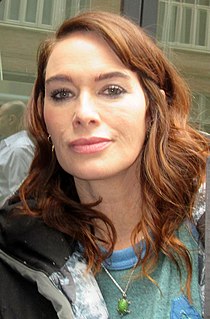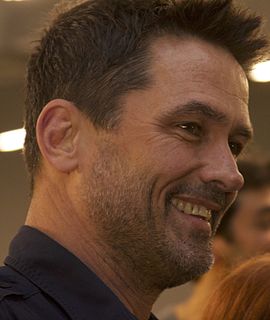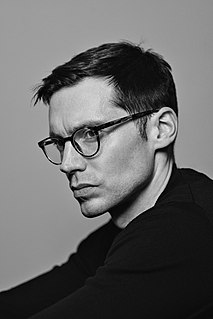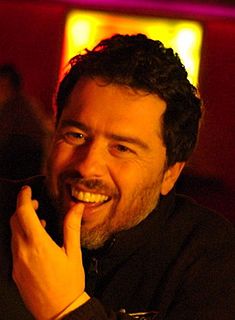A Quote by Toby Jones
The thing about Hitchcock which is quite extraordinary for a director of that time, he had a very strong sense of his own image and publicizing himself. Just a very strong sense of himself as the character of Hitchcock.
Related Quotes
Hitchcock's got a very interesting voice; it's a very controlled, measured rhythm that's quite slow and, in that sense, also felt quite controlling in its pace. He retained something from his childhood, that London sound, as well as adopting some of the L.A. sounds... All of this helps you create the character.
My mother ... had a very deep inner spirituality that allowed her to rebuild her life. It's extraordinary that she had such a strong sense of self and such a commitment to the future and such a strong creative sense that she could build new worlds for herself and for us out of the total devastation in her life.
A strong film director does leave you to your devices. A strong director allows you to be free and you trust that he's there and he will tell you if you've gone too far. A strong director allows you to be much more experimental and take greater chances than a director who isn't secure within himself.
The thing that impressed me then as now about New York… was the sharp, and at the same time immense, contrast it showed between the dull and the shrewd, the strong and the weak, the rich and the poor, the wise and the ignorant… the strong, or those who ultimately dominated, were so very strong, and the weak so very, very weak - and so very, very many.
I've done my share of reading about Abraham Lincoln, throughout my life, and he wasn't always carved in stone. He was a human being. He was a very thoughtful, self-educated, complex, magnanimous human being, who was very, very strong, very smart and very canny, with a very strong sense of what was right and what was wrong. Through all that, he's become an icon, over the years, and some of his warmth and humanity has been lost. You don't tend to think of Lincoln as this warm, funny person, but he was.
There are two kinds of filmmaking: Hitchcock's (the film is complete in the director's mind) and Coppola's (which thrives on process). For Hitchcock, any variation from the complete internal idea is seen as a defect. The perfection already exists. Coppola's approach is to harvest the random elements that the process throws up, things that were not in his mind when he began.
When you take on Hitchcock you know it's gonna provoke some sort of controversy, because there were so many people talking about the book [Stephen Rebello's Alfred Hitchcock and the Making of Psycho] and wanting it to be the film about the making of this movie [Psycho]. But that's been done. That's been done in the book, and Stephen Rebello himself was like, "I want a movie which is an entertainment for the audience." So we made the conscious decision.



































